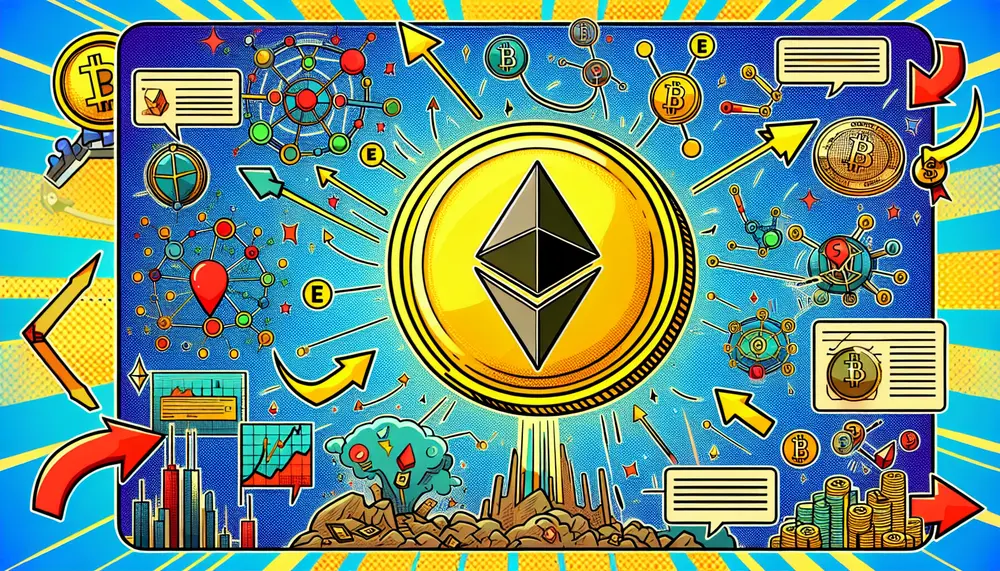Decentralized Exchange
Decentralized Exchange
What is a Decentralized Exchange?
A Decentralized Exchange (DEX) is a platform that allows users to trade cryptocurrencies without the need for an intermediary authority. This type of exchange operates on a blockchain that makes it possible for transactions to be secure and transparent. Unlike traditional exchanges, a DEX does not hold users' funds, offering an added layer of security.
How Does a Decentralized Exchange Work?
In a Decentralized Exchange, trades occur directly between users (peer-to-peer) through an automated process using smart contracts. These are self-executing contracts with the terms of the agreement directly written into code. There is no need for a middleman, which often results in lower fees and less time for transactions to settle.
Benefits of Using a Decentralized Exchange
Using a Decentralized Exchange comes with several benefits. Firstly, they offer enhanced privacy because personal information is not required to execute trades. Secondly, DEXs provide control over funds to the users, reducing the risk of theft from the exchange. Furthermore, they are generally considered more resistant to hacking than centralized exchanges.
Challenges Associated with Decentralized Exchanges
Despite their advantages, there are challenges associated with using DEXs. They can be less user-friendly and have a steeper learning curve for individuals new to cryptocurrency. Additionally, they might offer less liquidity compared to their centralized counterparts, which can result in slower trades and higher price volatility.
Decentralized Exchanges in the Context of All-in-One Platforms
Many all-in-one platforms are embracing decentralized exchanges as part of their offerings. This integration helps in providing a more holistic approach to asset management in the crypto space. Users can benefit from both centralized and decentralized services within a single platform, enhancing the trading experience while maintaining security and autonomy over their assets.
Blog Posts with the term: Decentralized Exchange

TRON Coin (TRX), launched in 2017 by Justin Sun, aims to decentralize the entertainment and content-sharing industry using blockchain technology. Initially an ERC-20 token on Ethereum, TRON transitioned to its own mainnet in 2018, enhancing transaction throughput and lowering fees...

Polygon Coin, initially launched as Matic Network in 2017 by Jaynti Kanani, Sandeep Nailwal, Anurag Arjun, and Mihailo Bjelic, aimed to address Ethereum's scalability issues with faster transactions and lower fees. The rebranding to Polygon in February 2021 marked its...

Ethereum, launched in 2015 by Vitalik Buterin, is a revolutionary blockchain platform that enables developers to build decentralized applications (DApps) using smart contracts. Its native cryptocurrency, Ether (ETH), powers the network and has driven significant innovation across various industries through...

Ethereum is a decentralized blockchain platform enabling smart contracts and dApps, proposed by Vitalik Buterin in 2013. Its native cryptocurrency, Ether (ETH), facilitates transactions and computational services on the network, with key features including decentralization, gas fees for operations, and...

A massive XRP transaction from Binance, GRVT's Bermuda license approval, parabolic crypto rallies reminiscent of past booms, ACX's surge post-Binance listing, Robinhood's ambitious growth plans, and Bitget's GMCI meme index highlight significant developments in the cryptocurrency market....

The article discusses Bitcoin's price volatility and ongoing accumulation, WazirX's recovery plan post-cyberattack, Gemini's European expansion with new hires, Coinbase's legal win against the SEC over crypto security definitions, and Binance surpassing 250 million users amid regulatory challenges....

Ethereum faces mixed prospects: analysts predict a potential rally to $5,000–$17,000 despite bearish sentiment and competition, while challenges like funding fragmentation, declining DEX activity, and reduced price forecasts highlight the need for innovation. However, Ethereum remains dominant in stablecoin transactions...

The cryptocurrency market rebounded with Cardano and XRP leading, despite Microsoft's rejection of a Bitcoin reserve plan, while significant liquidations occurred amid fluctuating Bitcoin prices....

Ethereum faces significant challenges, including price volatility, competition from Solana and Cardano, and technical delays with the Pectra upgrade. Despite setbacks, it remains a leader in DeFi with long-term growth potential but requires cautious investment due to market risks....

Bitcoin and Ethereum face price volatility due to Federal Reserve policies, tariff concerns, and market uncertainty, while Ethereum reclaims dominance in DEX trading. Experts predict potential recoveries for both cryptocurrencies amid cautious investor sentiment and growing institutional interest in Bitcoin....

Ethereum faces challenges with underperformance against Bitcoin, declining DEX volume, and low transaction fees, while layer-2 solutions show growth potential. Aavegotchi is migrating from Polygon to Base network to streamline operations amid market volatility....

The articles cover various topics in the crypto world, including Bitcoin's potential rally to $120K by January 2025 supported by Binance stablecoin reserves, exchanges navigating MiCA regulations, a dramatic detention involving a Binance executive in Nigeria, skepticism over FTX creditor...

Bitcoin's price dropped to $80,000 amid inflation and tariff concerns but may rebound in April due to Federal Reserve policies, while Ethereum regained its lead in DEX trading with $64.6 billion volume despite Ether's 18% decline. BlackRock CEO warned Bitcoin...

The NORDO meme coin humorously critiques Trump’s Greenland purchase proposal, blending satire with blockchain activism to address climate and political issues. Meanwhile, Coreum advances institutional finance with high-speed transactions and compliance features, Mastercard bridges fiat-crypto gaps via its Multi-Token Network,...

